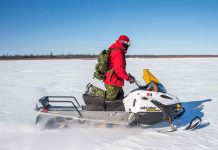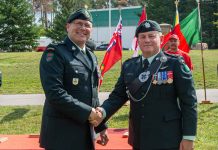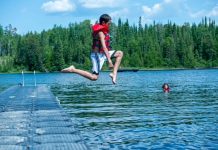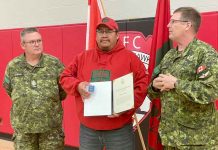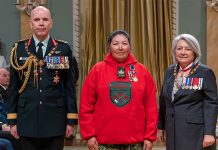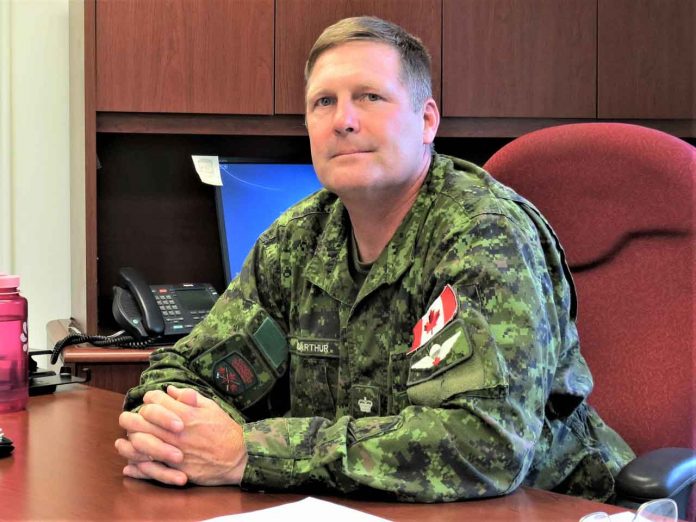
By Peter Moon
The Canadian Rangers of Northern Ontario have been on full-time duty for almost 18 consecutive months during the ongoing COVID-19 crisis.
In addition to their work in assisting civilian authorities with the government response to the COVID-19 pandemic the Rangers continue to carry out their regular duties, which include search and rescue missions, forest fire evacuations, and providing support for a range of community emergencies. Their pandemic work has involved assisting First Nations with difficulties in coping with serious COVID outbreak situations and assisting health agencies with the rollout of vaccines to 32 First Nation communities.
There are about 600 Rangers in 29 First Nations across the Far North of Ontario. They are part time army reservists, commanded by the 3rd Canadian Ranger Patrol Group (3 CRPG), based at Canadian Forces Base Borden, near Barrie.
“I feel very proud to be their commanding officer” said Lieutenant-Colonel Shane McArthur. “A great deal of that pride comes when I think of all that the Rangers and the headquarters staff have achieved since March of last year. They have done a remarkable job.
“I feel proud of all the Rangers that have stood up and answered the call to serve their communities and their country.”
In total, several hundred Rangers have volunteered to assist by going on full-time duty during the ongoing pandemic. Most do it in their home communities and others do it by providing badly needed support in First Nations that are sometimes hundreds of kilometers from their own homes and families. Their support has included delivering food and water to housebound residents, collecting their mail, delivering toys and games to children, conducting wellness checks, liaising with chiefs and councils, providing local transportation, and giving humanitarian assistance. Some have hunted to provide traditional foods. It can be a heavy workload in stressful situations.
“Our Rangers are being challenged mentally by all the things they are faced with, such as young children and elderly people suffering from COVID,” Lt. -Col. McArthur said. “They miss home, their families, their friends. They get homesick.”
To help mitigate this Rangers complete a questionnaire about their mental health before and after their periods of full-time service. Their overall health is monitored during the period they are on duty. An additional mental health support initiative is the unit chaplain’s weekly closed-forum discussions on the unit’s social media page on Facebook. They are well attended.
“Most Rangers are resilient and holding up very well to the mental challenges,” said Lt.-Col. McArthur. “When they experience difficulties, which they do, we are there to support them.”
(Sergeant Peter Moon is the public affairs ranger for the 3rd Canadian Ranger Patrol Group at CFB Borden.)

